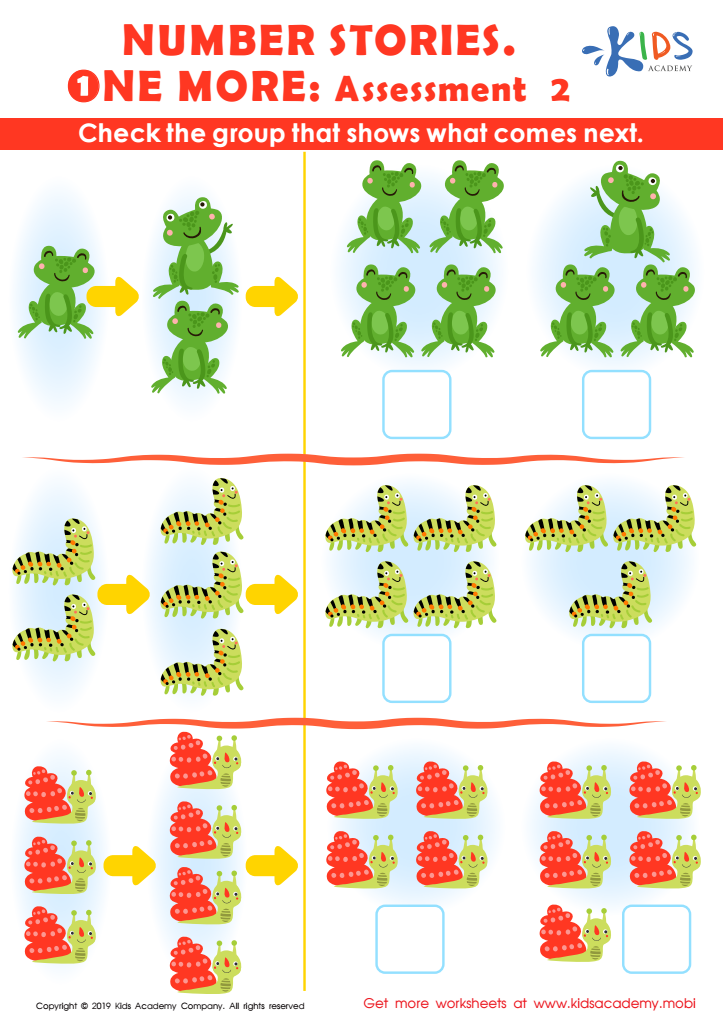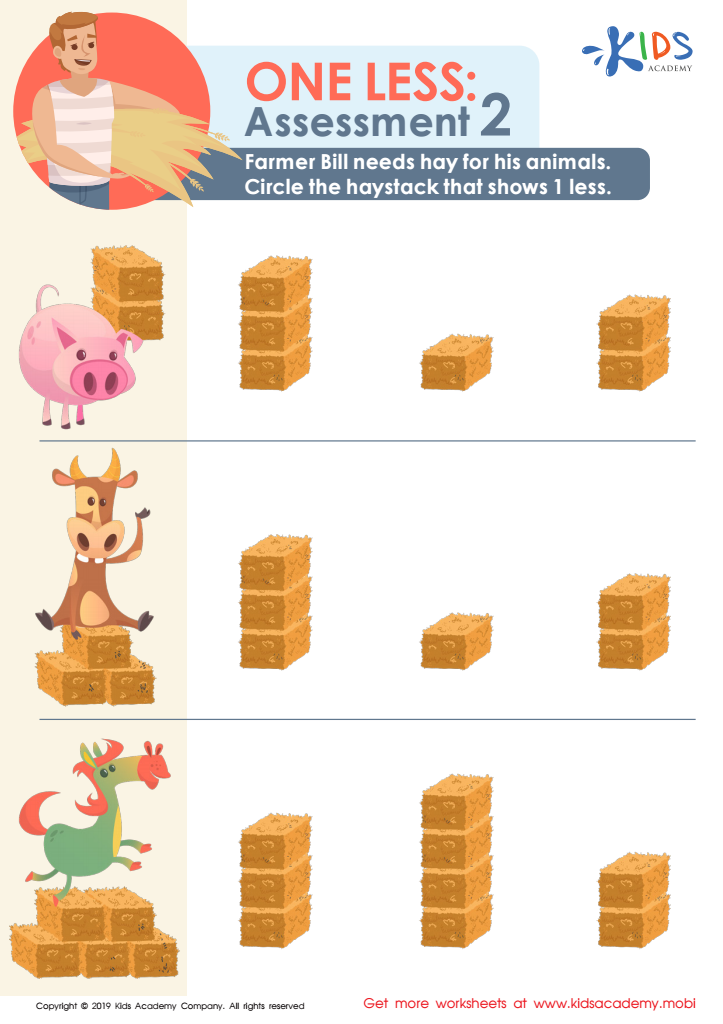Counting worksheets activities for Ages 4-6
2 filtered results
-
From - To


Number Stories One More – Assessment 2 Worksheet


One Less: Assessment 2 Worksheet
Counting worksheets activities serve as a cornerstone in the foundation of early mathematics education, offering a plethora of benefits to young learners embarking on their numerical journey. These activities are not just about learning numbers; they are intricately designed to foster a deep understanding of quantity, sequence, and the critical cognitive skill of pattern recognition.
Firstly, counting worksheets activities introduce children to the concept of numbers in a structured and engaging manner. By participating in these activities, children learn not only to recite numbers but to associate them with quantities, thereby developing a tangible understanding of what numbers represent in the real world. This association is crucial for the development of numerical literacy and sets the stage for more complex mathematical concepts.
Moreover, these worksheets are instrumental in enhancing a child’s fine motor skills. As children navigate through exercises that require them to count objects and write down numbers, they refine their pencil grip and control. This dual benefit of cognitive and physical skill development makes counting worksheets an invaluable resource in early education settings.
Counting worksheets activities also cultivate patience and attention to detail. Through repetitive practice, children learn the importance of accuracy and attentiveness, skills that are transferable to many other areas of learning and daily life. By engaging with these activities, children develop a meticulous approach to problem-solving, learning to review their work and correct errors independently.
Furthermore, the versatility of counting worksheets activities means they can be tailored to the individual learning pace and interest of each child. Whether it’s counting objects, connecting dots, or completing number sequences, these activities can be customized to challenge and stimulate young minds, ensuring that learning remains a dynamic and enjoyable experience.
In summary, counting worksheets activities are more than just an exercise in rote learning; they are a multifaceted educational tool that prepares children for a lifetime of learning. By fostering numerical understanding, fine motor skills, patience, and attention to detail, these activities play a pivotal role in early childhood education.
 Assign to the classroom
Assign to the classroom











